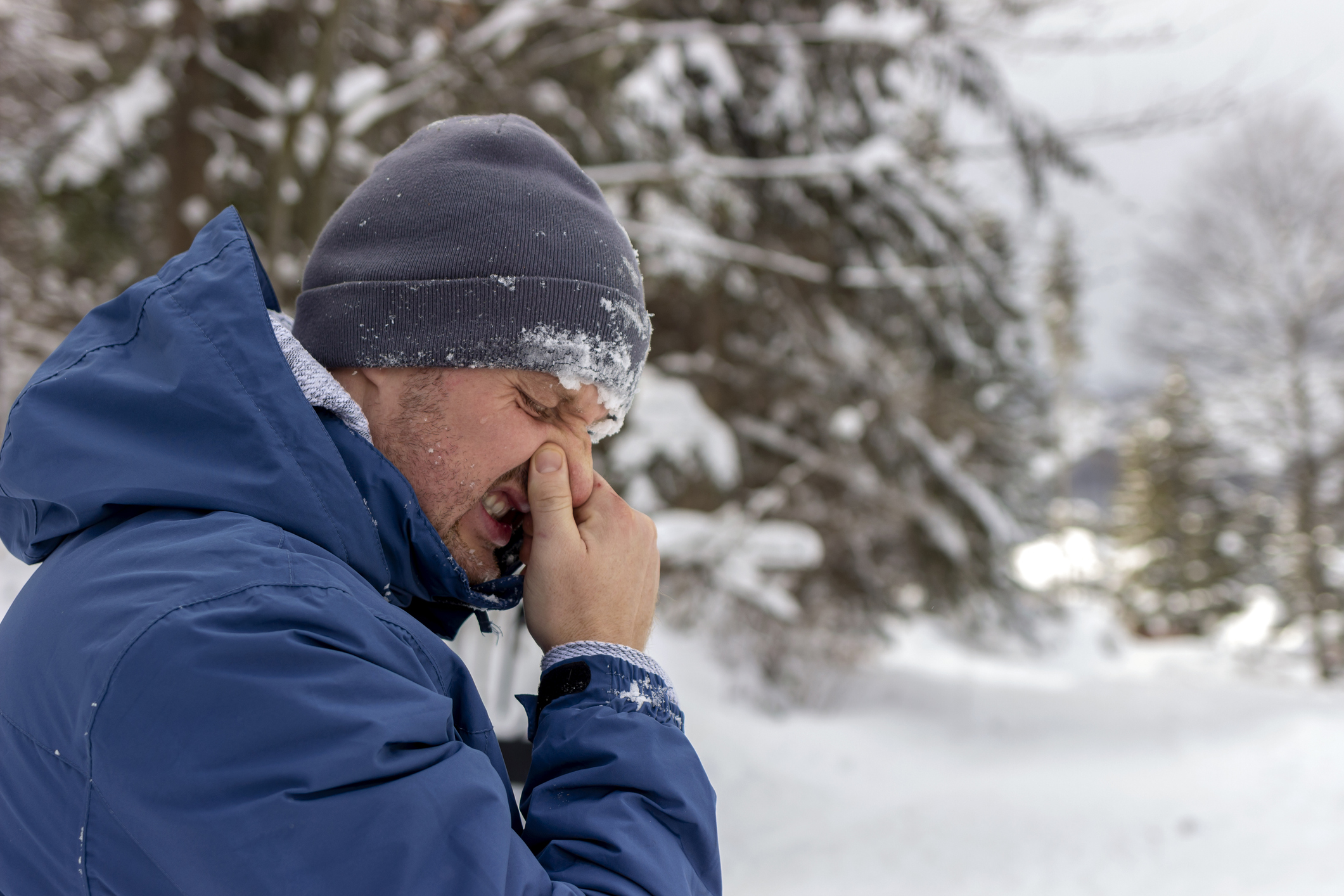Get Easy Health Digest™ in your inbox and don’t miss a thing when you subscribe today. Plus, get the free bonus report, Mother Nature’s Tips, Tricks and Remedies for Cholesterol, Blood Pressure & Blood Sugar as my way of saying welcome to the community!
Allergies in the wintertime: Weather as a trigger

Usually, we think of allergy season as being limited to spring and maybe fall. But for me, it feels like allergy season never ended this year.
Here we are well into winter, and I’m still sniffling and sneezing and dealing with plenty of nasal congestion. My symptoms were bad enough at one point that I worried I might have COVID or flu (both tests were negative, thankfully).
Apparently, I’m not the only one suffering from a never-ending allergy season. And an allergy expert at Baylor College of Medicine believes frequent, severe weather changes have been to blame…
Blame it on the weather
Dr. David Corry, professor of medicine-immunology, allergy and rheumatology at Baylor, observes that cold fronts, rainy days, and wild temperature swings into warmer territory can all make people’s allergy symptoms worse.
“People who have allergies, sinusitis, asthma or any other airway inflammatory disease frequently complain that their symptoms get worse with changes in the weather, and it seems like it’s when various fronts come through and there is a big temperature change,” Corry says.
For instance, when the weather suddenly shifts from cold to warm fronts, it can carry pollen in the air from other parts of the United States. And since tree and grass pollen are common seasonal allergy triggers, this can result in wintertime allergy misery.
Another common allergen, mold spores, thrive in wet conditions like those caused by the many series of severe thunderstorms or snowstorms that have occurred throughout the country. When the weather brings rain or other forms of precipitation, the wet environment they leave behind can cause mold to bloom and release the spores that set off allergy symptoms.
Corry points out that mold can be in the air at any time of year. “It gets worse with major rain or precipitation, especially if a big storm like a hurricane comes through,” he says. “Cases of severe allergy or asthma can skyrocket.”
While it’s not yet clear whether humidity and allergies are related, Corry says some studies suggest when the level of humidity changes, it can set off allergies. For instance, when humidity drops off after an initial rain, the nose can dry out, causing irritation and leading to symptoms of allergic rhinitis.
How to relieve allergy symptoms
One way besides testing to clarify whether you’re having allergies or suffering from a viral infection is to take an over-the-counter (OTC) oral antihistamine to see if your symptoms disappear. Dr. Corry also suggests treating allergies with OTC nasal steroid sprays, for a period of up to two weeks.
There are also natural methods you can try, such as adding quercetin to your diet. This flavonoid can help control and regulate the release of histamine, which the body produces during allergic reactions. Some foods rich in quercetin include kale, watercress, dill, red onion, berries, apples, red wine and capers.
Also, make sure you’re getting enough vitamin C, which has antihistamine abilities that help protect against allergic reactions. You can get plenty of vitamin C from citrus fruits, strawberries, broccoli and peppers, among other foods.
Some helpful holistic treatments for relieving allergy symptoms include acupuncture, cranial sacral therapy and infrared sauna, all of which can promote circulation in the sinuses.
My colleague, Margaret Cantwell, has written about her personal success with allergy relief using the black seed oil of the Nigella sativa plant. It was found to be an effective treatment for symptoms of allergic rhinitis without the side effects of allergy drugs. In a study of 66 patients, symptoms including nasal congestion, nasal itching, runny nose and sneezing were relieved during the first two weeks of taking it.
You can also irrigate the sinuses and promote drainage with an OTC saline spray. I recently switched to a saline spray to help with my allergy symptoms. It not only has helped clear my sinuses, it has kept my nasal passages from drying out and causing nosebleeds. These saline sprays can be used as often as necessary to relieve symptoms.
If you prefer, you can make your own 5 percent salt solution and use it with a bulb syringe or neti pot to irrigate your sinuses. But you’ll want to use sterilized or distilled water to avoid infection.
Editor’s note: Did you know that when you take your body from acid to alkaline you can boost your energy, lose weight, soothe digestion, avoid illness and achieve wellness? Click here to discover The Alkaline Secret to Ultimate Vitality and revive your life today!
Sources:
Can severe weather changes make allergies worse? — Baylor College of Medicine
What to Know About Saline Nasal Sprays — Verywell Health













